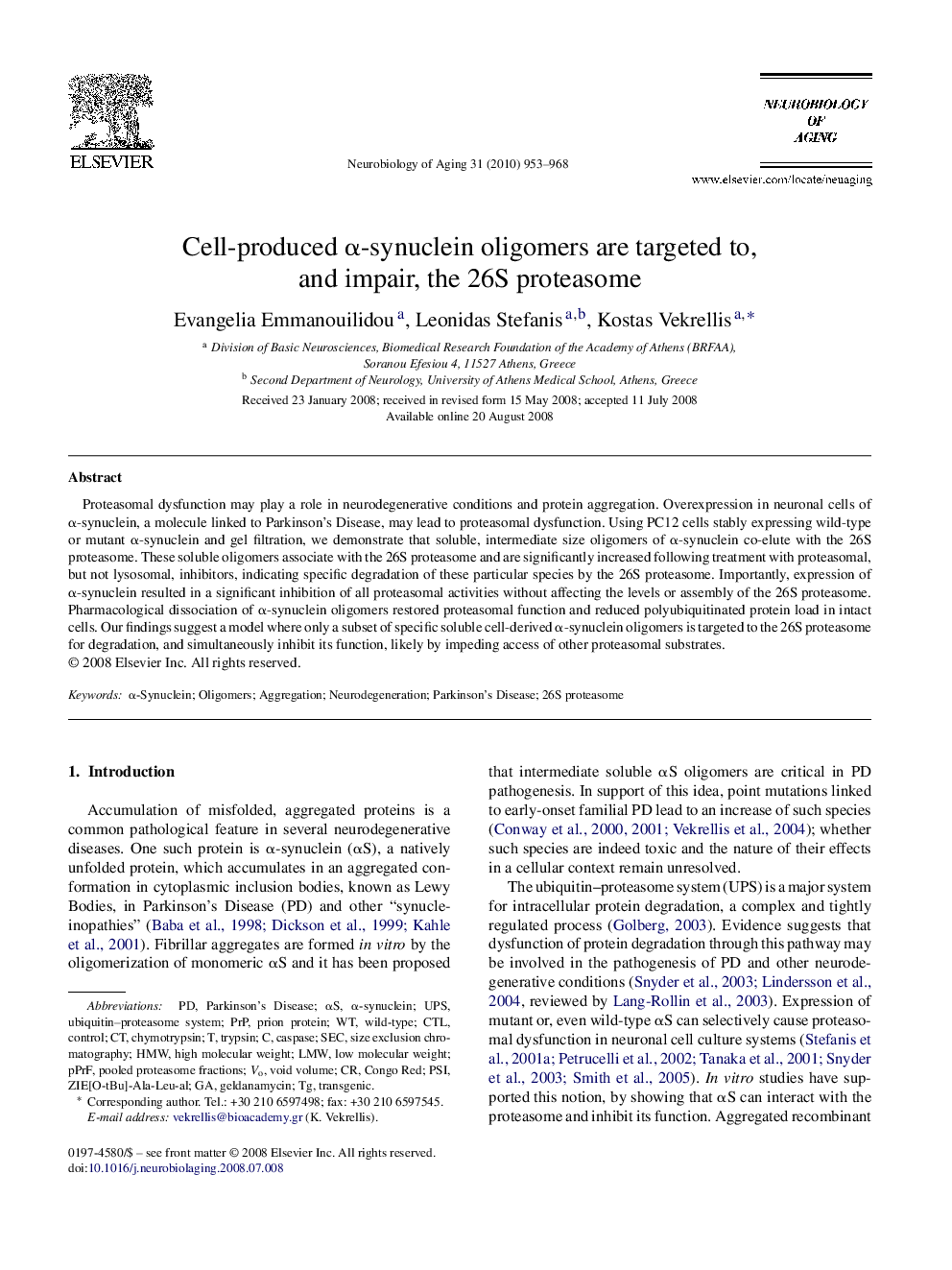| Article ID | Journal | Published Year | Pages | File Type |
|---|---|---|---|---|
| 6810579 | Neurobiology of Aging | 2010 | 16 Pages |
Abstract
Proteasomal dysfunction may play a role in neurodegenerative conditions and protein aggregation. Overexpression in neuronal cells of α-synuclein, a molecule linked to Parkinson's Disease, may lead to proteasomal dysfunction. Using PC12 cells stably expressing wild-type or mutant α-synuclein and gel filtration, we demonstrate that soluble, intermediate size oligomers of α-synuclein co-elute with the 26S proteasome. These soluble oligomers associate with the 26S proteasome and are significantly increased following treatment with proteasomal, but not lysosomal, inhibitors, indicating specific degradation of these particular species by the 26S proteasome. Importantly, expression of α-synuclein resulted in a significant inhibition of all proteasomal activities without affecting the levels or assembly of the 26S proteasome. Pharmacological dissociation of α-synuclein oligomers restored proteasomal function and reduced polyubiquitinated protein load in intact cells. Our findings suggest a model where only a subset of specific soluble cell-derived α-synuclein oligomers is targeted to the 26S proteasome for degradation, and simultaneously inhibit its function, likely by impeding access of other proteasomal substrates.
Keywords
Related Topics
Life Sciences
Biochemistry, Genetics and Molecular Biology
Ageing
Authors
Evangelia Emmanouilidou, Leonidas Stefanis, Kostas Vekrellis,
